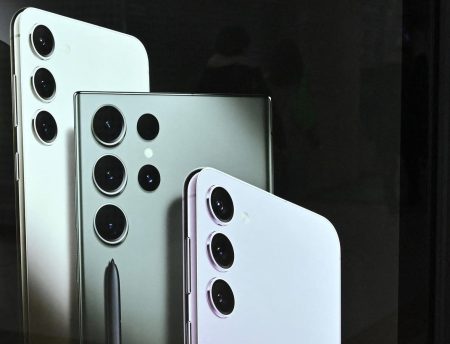Scott is the Chief Information Officer at First Orion.
In the ever-evolving marketing landscape, marketers continue to look for the right tools and technology to help deliver exceptional customer experiences, elevate their organization’s brand and drive growth.
Embracing innovation and staying ahead of industry trends is challenging for marketers today, with the massive proliferation of new marketing technology (martech) solutions. In 2023, the number of martech solutions numbered over 11,000, up 11% from 2022, according to marketing landscape data from chiefmartec and Martech Tribe.
While this is a head-spinning array of solutions to choose from, chief marketing officers (CMOs) can optimize marketing campaigns and budgets by directing investments to three emerging and here-to-stay marketing technologies.
1. Branded Calling
Branded calling technology, a solution my company offers and is well-versed in, advances the calling experience and brings the phone call back into the martech stack. This technology lets organizations brand outbound calls.
With branded calling, marketers can control that digital display, adding rich call data that increases the potential of connecting with the customer and engaging in meaningful conversations. The technology also meets customer expectations for more brand transparency. Research reveals that 86% of consumers agree that businesses should take measures to ensure their calls are properly labeled.
Consumers have become conditioned to ignore calls from phone numbers they don’t recognize. Branded calling technology injects trust back into the phone call, making it easier for companies to connect with customers and provide the personal interaction consumers want.
When marketers can effectively reach customers by phone, it improves the experience all around. A report by Forrester found that branded calling can increase ROI for enterprises by up to 498%.
This communication technology lets organizations gather insightful data like call rates, allowing them to identify the strengths and weaknesses of their calling programs and optimize these programs based on those data points.
2. Artificial Intelligence
More and more artificial intelligence (AI) powered marketing tools are being introduced each year to help companies optimize campaigns, automate key processes, reduce costs and drive business growth. These and other benefits are fueling the growth of this technology in marketing.
Survey data from Influencer MarketingHub shows that 61.4% of marketers have used AI in their marketing activities, and 19.2% of survey respondents spent more than 40% of their marketing budget on AI-driven campaigns.
AI gives marketers the ability to analyze data at scale to gain deeper insights into consumers that can be used to create more effective campaigns. AI and machine learning (a subset of AI) technology can identify existing customer behavioral patterns and predict future behavior based on that data. Using that detailed behavioral analysis allows marketers to predict conversion rates more accurately.
Marketers are also using AI to help create content that improves customer engagement. Data-driven insights from this technology are helping marketers create engaging, timely and relevant content at scale for websites, newsletters and blogs.
The ability to personalize customer experiences is one of the biggest marketing benefits of AI. The technology allows marketers to tailor messages and offers based on buyer behavior to ensure the right message is sent to the right people at the right time. Personalizing campaigns like this allows marketers to create deeper connections with their customers and increase customer loyalty.
3. Video
As one of the most popular and highly consumed formats, video is a powerful tool for helping marketers engage with target audiences, boost brand awareness and drive conversions. Short-form videos running under 10 minutes in length are highly-consumed, shareable content that can reach a wide range of audiences on a variety of platforms.
Video marketing is one of the most effective forms of marketing in that it allows companies to engage with their audiences on a more personal level than with text or images alone. Marketers recognize the power of video, with 96% valuing video as an “important part” of their marketing strategies, according to a survey by Wyzowl.
With technology evolving to make it easier and quicker for marketers to create video content and with data showing the clear ROI of this medium, more and more marketers are integrating video into their marketing strategies.
CMOs have many options when it comes to using martech to elevate their organization’s brand, forging meaningful connections with customers and driving growth and profitability. Harnessing the power of branded calling, AI and video technologies can help them achieve these business-critical goals.
Forbes Technology Council is an invitation-only community for world-class CIOs, CTOs and technology executives. Do I qualify?
Read the full article here










